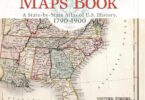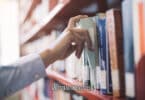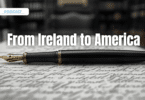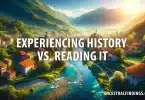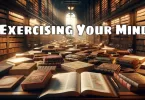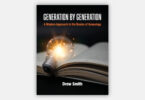As genealogists and historians, we are inherently drawn to the stories of the past, seeking to weave together the threads of history and ancestry into coherent narratives that illuminate our collective and personal identities. Yet, our quest for knowledge should be wider than historical texts and genealogical records alone. Reading across a broad spectrum of genres and subjects can significantly enrich our understanding of the past, present, and future. Let’s explore the benefits of cultivating a diverse reading habit and offer insights into building a personal library that can become a cornerstone in our intellectual and professional journeys.
Expanding Perspectives Through Diverse Reading
For those of us dedicated to unearthing the past and connecting the dots of lineage, reading widely opens up new avenues of understanding. Each book, whether a novel, a scientific exploration, or a philosophical treatise, provides unique insights into the human condition, cultural practices, and the myriad ways in which history unfolds. This diversity of perspective is crucial for genealogists and historians, as it:
- Enhances Empathy and Understanding: Engaging with narratives from different cultures and times fosters a deeper empathy for the people we study and write about. It helps us appreciate the richness of human experience and the complexity of societies, which in turn, can inform our research and storytelling.
- Spurs Creativity and Innovation: Reading across disciplines encourages creative thinking and can lead to innovative approaches in our research methodologies and interpretations of historical data. It’s not uncommon for a concept in a seemingly unrelated field to provide the key to unlocking a historical puzzle or to offer a fresh lens through which to view genealogical connections.
- Builds Comprehensive Knowledge: A well-rounded reading habit contributes to a broad base of knowledge that can enhance our expertise. Understanding historical contexts, social dynamics, and even environmental factors that influenced our ancestors requires more than just a focus on dates and genealogical charts. It demands familiarity with a wide array of subjects.
Curating a Personal Library for the Historically Inclined
Building a personal library is a joyful and ongoing process that complements our endeavors in genealogy and history. Here are several strategies to create a collection that not only serves as a research resource but also inspires and delights:
- Incorporate Core Historical Works: Begin with foundational texts in your specific areas of interest, whether they be general history, regional studies, or thematic analyses. These works provide the grounding for deeper exploration.
- Embrace Interdisciplinary Titles: Add books that span multiple disciplines—science, art, philosophy, and literature—to draw connections between different areas of knowledge and historical periods.
- Seek Out Biographies and Memoirs: These personal narratives offer intimate glimpses into the lives of individuals across time and place, enriching our understanding of historical contexts and human motivations.
- Explore Fiction with Historical Settings: Historical fiction can bring the past vividly to life, offering imaginative yet informed reconstructions of historical epochs, which can be both enlightening and entertaining.
- Stay Updated with Contemporary Analyses: Keeping abreast of the latest research and theories in history and genealogy can spark new ideas and approaches in your own work.
- Organize Thoughtfully: Consider organizing your library in a way that mirrors your research interests or creates an inviting atmosphere for discovery. Whether categorized by period, geography, or theme, an organized library can enhance your research efficiency and enjoyment.
- Personalize Your Space: Make your library a reflection of your journey as a genealogist and historian. Adorn it with artifacts, maps, photographs, and other memorabilia that inspire you and connect you to the past.
For those of us devoted to the study of genealogy and history, the act of reading widely is not merely a pastime; it’s an essential component of our intellectual and professional development. By intentionally curating a personal library that spans a variety of genres and subjects, we not only enrich our understanding of the human saga but also enhance our capacity to contribute meaningfully to the tapestry of history. Let us then embrace the infinite journey of learning, allowing the pages of books to guide us through the complexities of the past, inform our present, and inspire our future endeavors. Happy reading, fellow historians and genealogists!

